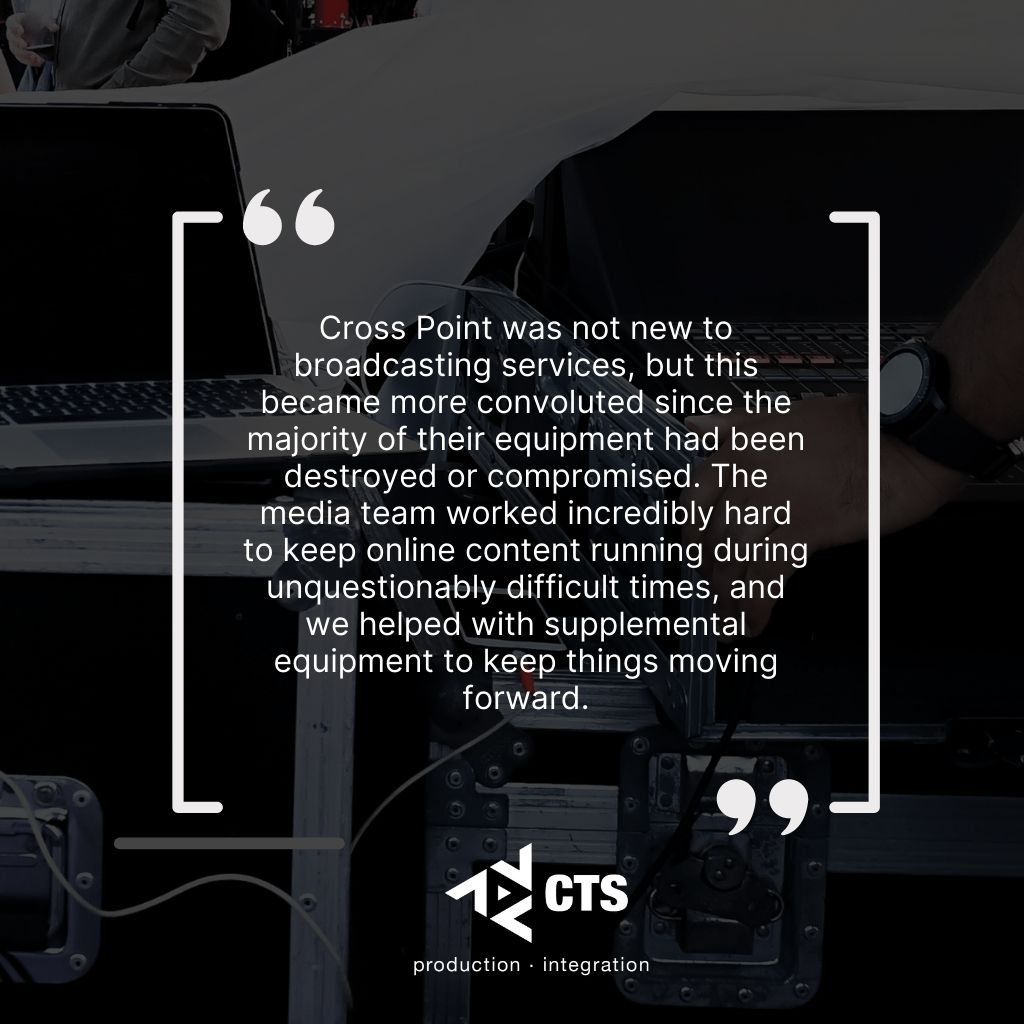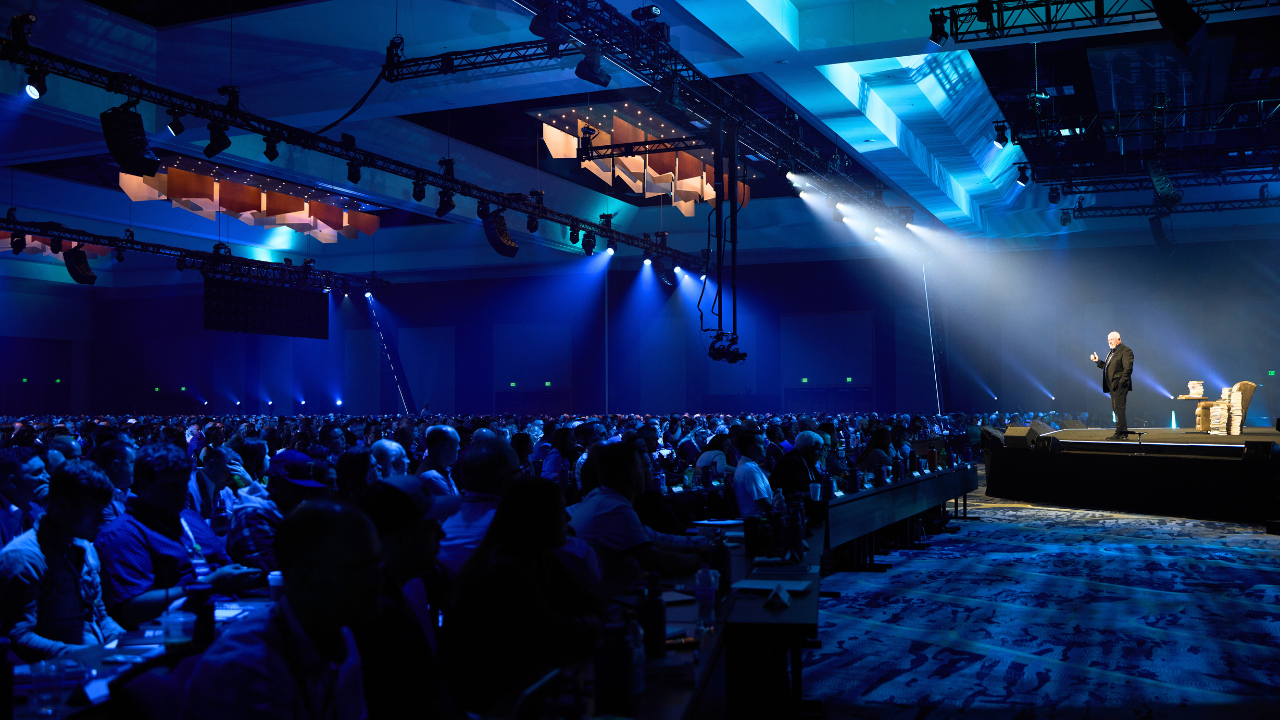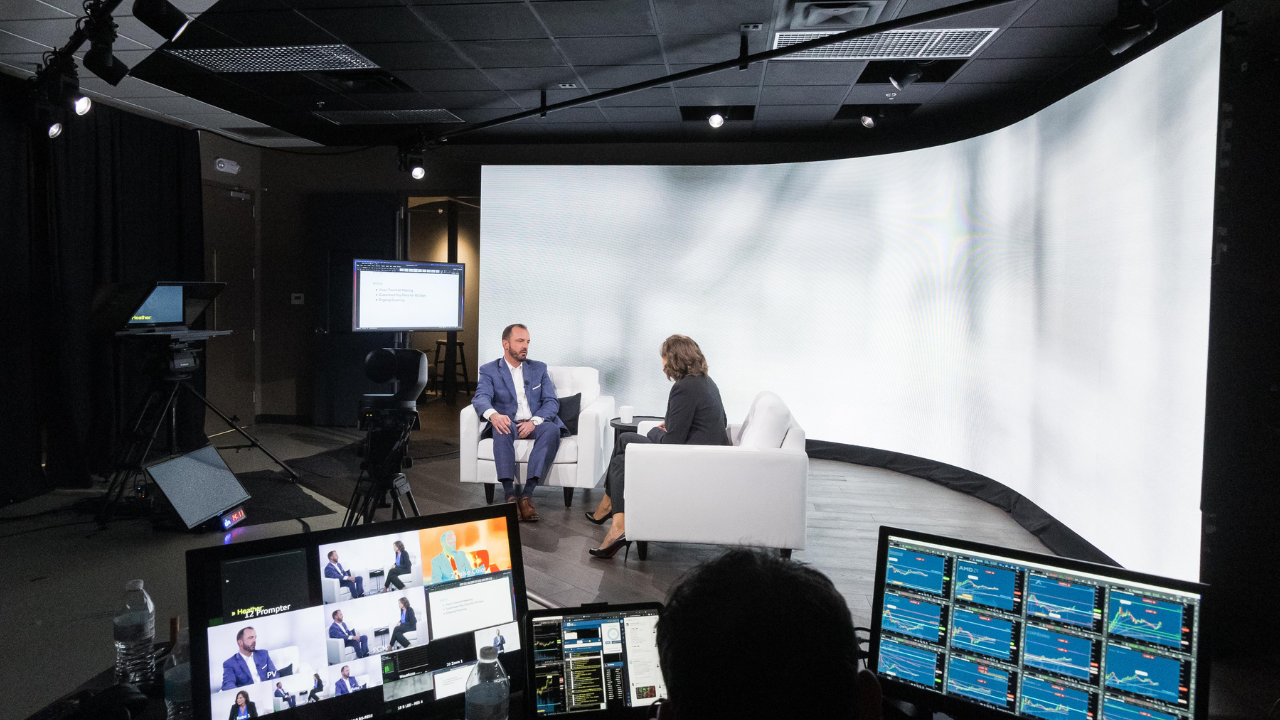Case Study — Rebuilding Cross Point After Tornado and Pandemic
Published on: Tuesday, September 27, 2022 - 7:00am

In 2019, Cross Point Church in Nashville, Tennessee, sought an upgrade for its presentation and broadcast video systems at its downtown campus and approached us to carry out the project. After working through design concepts and meeting with manufacturers at several tradeshows to evaluate new equipment, a final design and logistical plan for the church took shape.
However, on March 2, 2020, a series of tornadoes tore through central Tennessee, destroying property, taking lives, and devastating communities. The Cross Point building was one of many impacted by the storms.
Aftermath of the Storm
Cross Point’s main campus sustained significant damage during the storm. The tornadoes had torn off parts of the roof, knocked out entire sections of the building, and the large sign bearing the church’s name was destroyed. Any portions left standing had extensive water and wind damage. Rooms where walls remained intact either had standing water throughout or a thick layer of dirt and debris, almost as if the building had been abandoned years before.
What had begun as a systems upgrade turned into a full facility rebuild. And to complicate matters further, the pandemic hit in full force just weeks after the tornadoes.
Helping Where We Could
The priority after the storms was to first ensure that families were safe. Because of our existing relationship with Cross Point, we got in touch right away, offering to help in any way we could. Because CTS is both an integration company and a live production company, Cross Point was able to lean on us for immediate assistance in multiple areas.
Cross Point began mobilizing community support groups to help those in areas that needed it. Soon thereafter, the church staff checked in on their multiple campuses to determine what challenges the storms had created.
The church also expressed a desire to continue offering services for spiritual support on top of their other efforts to care for congregants and the church community. They were quickly able to secure the use of Lipscomb University’s Allen Arena, and our live production team was able to provide systems and overall operational assistance. Services were held less than a week after the storms.
Cross Point was not new to broadcasting services, but this became more convoluted since the majority of their equipment had been destroyed or compromised. The media team worked incredibly hard to keep online content running during unquestionably difficult times, and we helped with supplemental equipment to keep things moving forward.

Almost as quickly as these short-term plans were established, Covid-19 restrictions were enforced. Cross Point was then faced with a new set of challenges, complications, and decisions.
As many churches did during early lockdowns, Cross Point began filming worship services and teaching content at pastors’ homes and other remote locations. The church would then edit the content and publish it for the congregation to view online. As restrictions lifted, Cross Point was able to begin combining livestreamed content with pre-captured content.
Lastly, Cross Point needed to address the issues of damage assessment and planning for recovery. Since we had experience in those areas, Cross Point recruited our team to lead the AVL systems evaluation and coordinate with the church on insurance reporting. We also began to work in a design-build capacity for the recovery and rebuild plan.
Moving Forward
As the pandemic restrictions eased and in-person meetings resumed, we continued to work with Cross Point on its temporary solutions. Most of the building remained unusable, but the general contractor was able to get the worship center cleared for temporary occupancy, despite no new systems being installed and only partially-functioning equipment remaining. At that point, our production team was able to supply lighting, LED walls, and infrastructure to support Cross Point’s return to services at home, even while construction continued throughout the facility.
A recovery and rebuild project of this nature is always going to prove challenging. Locally, the church was one of thousands impacted by this event, which inevitably led to long delays, slow response times from insurance providers, and a shortage of construction crews due to the massive rebuild efforts across the state. Additionally, the congregation and staff were displaced from the facility. Cross Point had been holding weekly services in the building, so they needed to ensure that the facility was clean, safe, and functional for Sunday services while heavy construction was going on.
Furthermore, there were logistical complications that came with the pandemic, including government restrictions and global supply chain issues. By the time everything was finalized — including the insurance approval process, designs, and budgets — the world was experiencing technology and material shortages. This led to a much longer construction timeline than anyone could have imagined.
In a construction process such as this, it is most efficient to have concentrated periods of installation work onsite. However, due to the supply chain issues, we knew this was not going to be possible without making the church wait an inordinate amount of time to benefit from the new systems. In order to address this as efficiently as possible, our team worked with the Cross Point staff to strategically deploy and install new systems in segments. By doing this, we were able to provide new equipment as the material became available and site preparedness was aligned.
However, the length and complexity of this project caused many ups and downs. Often with projects like this one, there are changes to operational processes, staff, and technology. Throughout these changes at Cross Point, we have stayed close with the staff to adjust according to their needs.
Relationships Are Paramount
Unique circumstances like this one highlight the reason we place such a high value on client relationships. A client we respected and cared about found themselves in back-to-back catastrophes, needing resources and support. Because of that relationship, we could offer immediate help in the short term, meet daily and weekly needs, and offer mid-term and long-term support.
This is why we do what we do. It’s how we believe a relationship-oriented company should operate when it comes to the well-being of its clients. We’re there to offer help in our clients’ times of need because of the expertise we’ve cultivated and the passion and commitment we have for serving our clients.



